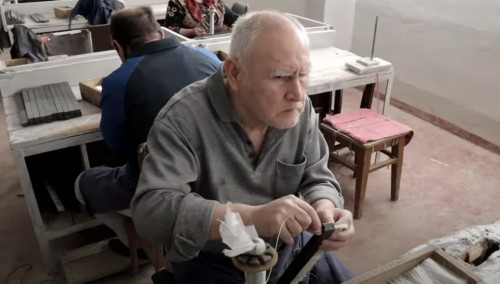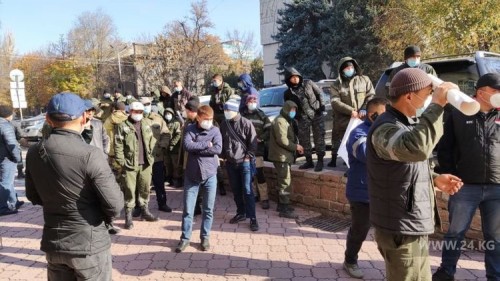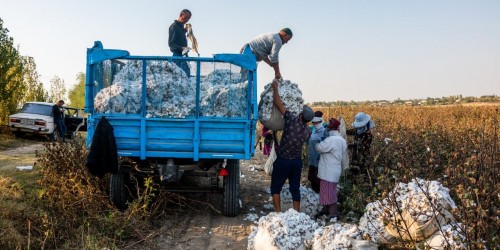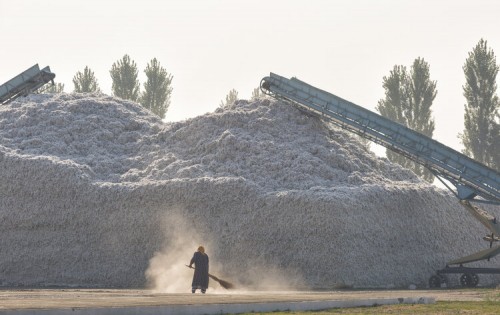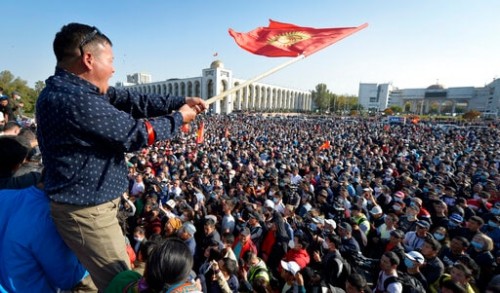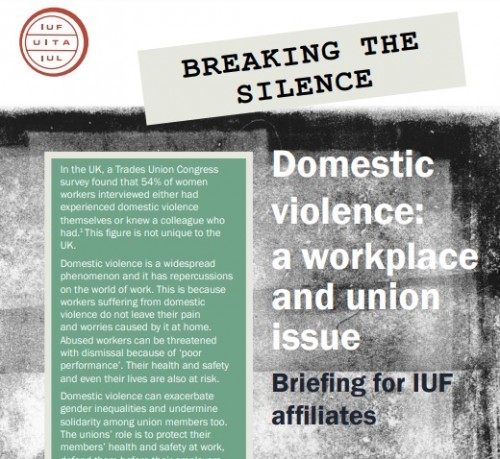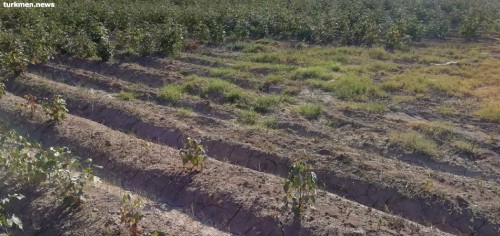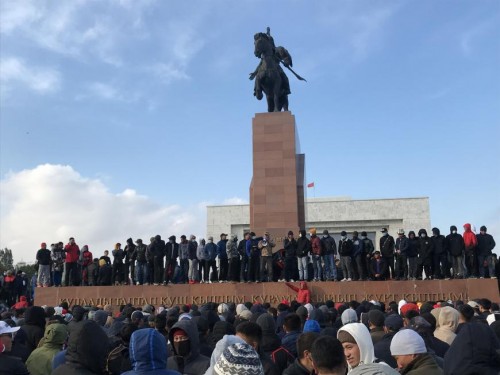Countries
Solidarity campaigns
13 August 2024
Georgia: Support striking workers at Evolution Gaming
5 June 2023
Georgia: Justice for Wolt couriers
10 May 2023
Belarus: Trade union activity is not extremism!
2 November 2019
Kazakhstan: Trade unionist Erlan Baltabay imprisoned - again!
19 November 2018
Kazakhstan: Stop repression and physical attacks on leaders of independent unions; hands off Larisa Kharkova, Erlan Baltabai and Dmitriy Senyavskiy
18 April 2018
MALOKHAT STILL NEEDS YOUR HELP
News
16 November, 2020 / uzbekistan
BLIND WORKERS IN TASHKENT ARE COMPLAINING OF LOW WAGES AND UNEMPLOYMENT
Blind workers at the “CHYOTKA” training and production enterprise in Tashkent which belongs to the Society of the Blind of Uzbekistan are complaining of meagre wages and unemployment. The situation in the labour market of Uzbekistan is further exacerbated by the negative consequences of the Covid-19 pandemic and related quarantine measures. Disabled people are now experiencing an even higher level of unemployment, which can lead to poverty reports a local journalist Dana Oparina at Anhor.uz.
30 October, 2020 / kyrgyzstan
Kyrgyzstan: Severelectro employees demand dialogue with management
Protesting employees of Severelectro OJSC demand from the Chairman of the National Energy Holding, Aitmamat Nazarov, to come out to them for a dialogue. About 70 fitters and electricians of the company took part in a protest because of their disagreement with the appointment of the new director of the company Ulan Astarkulov.
26 October, 2020 / uzbekistan
Uzbekistan: WE NOW HAVE RIGHTS, BUT HOW TO IMPLEMENT THEM?
On October 15, the president Shavkat Mirziyoyev signed a new law “On the rights of persons with disabilities”. What measures must be taken so that it does not repeat the fate of the previous law – “On social protection of disabled people” – and really protects their rights and interests? Together with Oybek Isakov, Chairperson of the Association of Disabled People of Uzbekistan (an umbrella NGO uniting 28 public organisations of/for disabled people) we published an article in Russian at Gazeta.uz.
26 October, 2020 / uzbekistan
INTERIM FINDINGS ON UZBEKISTAN ́S COTTON HARVEST – 2020
For the tenth consecutive year, Uzbek Forum for Human Rights has independently monitored forced labor during the cotton harvest in Uzbekistan. The harvest in 2020 is taking place amidst the significant challenge of the COVID-19 pandemic. There are also important policy developments, such as the nearly complete transfer of the cotton production system to private cotton textile clusters and the abolition of state cotton quotas, as well as existing issues such as the continued lack of independent recruitment channels.
15 October, 2020 / uzbekistan
The Situation with Uzbek Cotton: Why the Pledge Remains in Place and a Path Forward
Uzbekistan is a country in transition. In recent years, the Uzbek government eliminated state-sponsored forced child labor in the cotton harvest, and then committed in 2017 to eliminate forced adult labor. The government has made significant progress toward achieving that commitment, including increasing cotton picking wages and enacting measures to abolish government production quotas for cotton.
09 October, 2020 / kyrgyzstan
KYRGYZSTAN: CIVIL SOCIETY APPEALS FOR DIALOGUE, RESPECT FOR HUMAN RIGHTS AND THE RULE OF LAW IN THE CURRENT TIMES OF TURMOIL
Members of the Civic Solidarity Platform (CSP) – a network of human rights NGOs from across Europe, the former Soviet Union and North America – express our support and solidarity with Kyrgyzstan’s civil society in its efforts to ensure respect for human rights and the rule of law at this time of political crisis and upheaval in the Central Asian country. We call on the authorities of Kyrgyzstan, as well as on all the groups staking claims on power to opt for dialogue and cooperation, refrain from violence, and act strictly within the framework of national and international law with a view to overcoming the current uncertainty, power struggles and threats of lawlessness and to continuing the course of democratic development.
08 October, 2020 / International
Breaking the silence – why domestic violence is a trade union issue
Domestic violence is widespread and has increased during the COVID-19 pandemic. The IUF is today launching Breaking the silence, a guide on why domestic violence is a trade union issue and how unions should deal with it. It draws strongly on materials developed by IUF affiliates.
07 October, 2020 / turkmenistan
Forced Labor Monitoring: Coronavirus Precautions Ignored for Cotton Pickers
Since the end of September large numbers of public sector workers have been sent to pick cotton. A total lack of coordination means that in some districts people have to travel to the fields in open pick-up trucks and even on foot. Quite a few children aged between 10 and 16 have been seen among the pickers, although officially there’s a ban on using minors. Children either go instead of their parents or in order to earn some money. Public sector workers can buy themselves out of cotton picking duties by paying pickers “from the street” to go in their place. The heads of public sector organizations are suspected of pocketing some of this money. The number of cotton pickers required from each profession varies from region to region. For example, schoolteachers in Turkmenabat have to give money for cotton picking twice a month and to go picking themselves two Sundays a month, while in some districts in Dashoguz teachers go only at the weekends and do not have to contribute any money during the week.
07 October, 2020 / kyrgyzstan
KYRGYZSTAN: RESPECT RIGHTS WHILE RESTORING ORDER
Law enforcement forces in Kyrgyzstan responding to protests and unrest should uphold human rights and the rule of law, including if provoked by some protesters, Human Rights Watch said today. Clashes between protesters and law enforcement on the evening of October 5, 2020, following the flawed October 4 parliamentary election, led to significant casualties, including 1 death and 164 hospitalizations, according to health officials cited in local media.
07 October, 2020 / kyrgyzstan
Appeal of Bir Duino–Kyrgyzstan and the solidarity network: "Kyrgyzstan is in Danger!"
Given the acute conflict situation that has developed after the fraudulent elections, realising all the threats to the security of the citizens, the state and its economy, we urge all political groups to put aside their personal ambitions and unite all progressive forces to take urgent measures to ensure a peaceful transition, to prevent the further spread of violence and destabilization in the country.We call on all political forces to act within the framework of the constitution to start the process of legitimizing the post-election situation and the peaceful transition of power in accordance with the Constitution of the Kyrgyz Republic and its international obligations. We understand the legitimate demands of the protesters who do not agree with the use of administrative resources and falsification of the elections results, the violent use of rubber bullets, tear gas and stun grenades by law enforcement agencies, when a young activist Altynbek uulu Umutbek died at the age of 19 and over 600 people were injured, more than a hundred of them are in hospitals.

